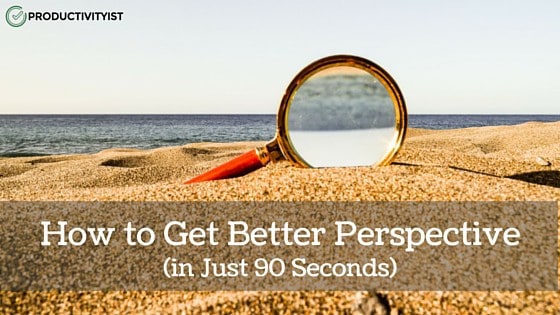
Here’s a typical day for most people:
- Wake up.
- Get ready for work.
- Go to work.
- Work.
- Get ready to go home.
- Go home.
- Do “home” work.
- Have some leisure time.
- Go to bed.
This may be simplifying things, but those are the basics. Sure, some of these things may be placed in a different order, but they happen at some point in the day.
But there’s more to it than that.
There are specifics. There are details. There are finer points than just the itemized list.
Yet we don’t break it down to the specifics, the details or the finer points as often as we might want – or should. Instead we just go through the list, checking things off as we go and waiting to get to the end of the list only to start it all over again the very next day.
Over time, we work at getting faster at completing the things on the itemized list. We work at getting out the door faster for work so we can beat traffic. We work at cramming in as many activities as possible during our leisure time so we can – hopefully – have more enjoyment.
The problem with just adding speed to the mix on its own is that we run the risk of being less effective. When we add more speed or more details to the things on our list, we often lose our ability to be intentional and attentive to those very details.
In our haste to do more, we don’t fully taste what we already do.
We consume; we don’t experience. We settle; we don’t savour. All of this means that we “do” productive.
We should “be” productive.
“Life gives you plenty of time to do whatever you want to do if you stay in the present moment.” – Deepak Chopra
I saw Deepak Chopra speak a couple of months back and while I don’t agree with everything he speaks about, I do like what he says about being and how it relates to time. Being is not associated with time.
Rather than spending time speeding things up for the sake of doing, taking the time to think about whether or not what you are doing is worth doing at all. Instead of checking off as many boxes as possible, check the boxes you have on your list and make conscious choices about them.
In order to make this happen, you need to be aware and have focus. (What’s even more interesting is that you need to be aware to have full focus and you need to have focus in order to be fully aware.)
I’d like to offer a 90 second exercise to help you get better perspective, become aware, and find a small measure of focus.
- After you’re done reading this piece, just stop and do nothing for 30 seconds. It may help to focus on your breath and close your eyes while doing so. But do this no longer than 30 seconds today.
- Once you’re done with the 30 seconds, grab a piece of paper and a pen/pencil and write down everything you think you need to do, ought to do, or want to do over the course of 30 seconds. You should time this. Stop once the 30 seconds is up.
- Take a final 30 seconds to choose one of those things to work on today. Commit to working on it so that you can honestly say you have made progress on it before day’s end.
That’s it. That’s all I want you to do. By doing this, you’re being aware. And by working on just one thing intentionally, you’re exercising focus.
In short, you’re being productive.
“I am a human being, not a human doing.” – Kurt Vonnegut
I want to help more people – people like you – be. I want you to be aware so that you can focus on checking off the right boxes instead of trying to check off all of the boxes.
Now go and complete that 90 second exercise. You’ll be glad you did later.
Want to give yourself even more perspective and increase your level of focus? Then the Awareness Building Class is for you. It contains five audio lessons filled with real-life stories and actionable advice to help you improve your focus and sort out any confusion in your work or personal life. It’s time to become proactive instead of reactive in your work life and your personal life.

